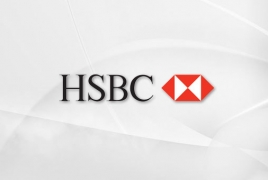Trade set to accelerate on emerging market rebound: HSBC May 29, 2015 - 16:10 AMT PanARMENIAN.Net - Advanced economies look set to sustain global commerce through 2016 before an emerging market recovery, and potentially a series of game-changing trade liberalization agreements, accelerates growth back to levels last seen before the financial crisis, the latest HSBC Trade Forecast shows. From an average of 1.5 per cent annual growth between 2012 and 2014, world merchandise trade should increase by about 8 per cent a year from 2017, according to the report. Although that’s still below the 9 per cent pre-crisis pace of expansion, the conclusion of additional World Trade Organization accords – plus the proposed Trans-Pacific Partnership (TPP), Transatlantic Trade and Investment Partnership (TTIP) and Regional Comprehensive Economic Partnership (RCEP) – could have a significant additional impact, according to a press release. “In the short term an increasingly robust U.S. economy, aided by cyclical upturns in Europe and Japan, are likely to provide the greatest cross-border opportunities for businesses,” said Simon Cooper, Chief Executive of HSBC Commercial Banking. “Further out, demographic trends in emerging markets will undoubtedly fuel greater ‘south-south’ trade, meaning companies should adopt a diversified strategy spanning both developed and developing markets. If ratified, the international trade deals currently under negotiation could also have a major catalytic effect - one that’s hard to quantify but that should give businesses plenty of reasons for optimism.” Amongst the 25 economies analyzed for the HSBC Trade Forecast, trade expansion is expected to be strongest in India and Vietnam over the medium term. The value of goods exported from these countries may increase by an average of more than 10 per cent a year from 2015 to 2030 as Asian nations, plus other emerging market economies such as Turkey, Egypt, Mexico and the UAE, drive trade growth. Demand for capital goods, particularly in emerging markets, bodes well for companies that make and trade in machinery and transport equipment. Downside risks to the outlook include delays to the negotiation and implementation of trade liberalization agreements and the continued shortening of global supply chains; such as the trend to re-shore production and so reduce cross-border traffic in intermediate manufactured goods. Yerevan has dismissed Turkey’s demand to shut down the Armenian nuclear power plant as “inappropriate”. Armenia will loan 2.9 billion drams to Nagorno Karabakh (Artsakh), according to a draft government decision. The Ministry of Ecology and Natural Resources of Azerbaijan has “strongly condemned” Armenia’s decision. Kerobyan has said that for the first time in the history of Armenia, the volume of foreign direct investments amounted to about $1 billion. Partner news |